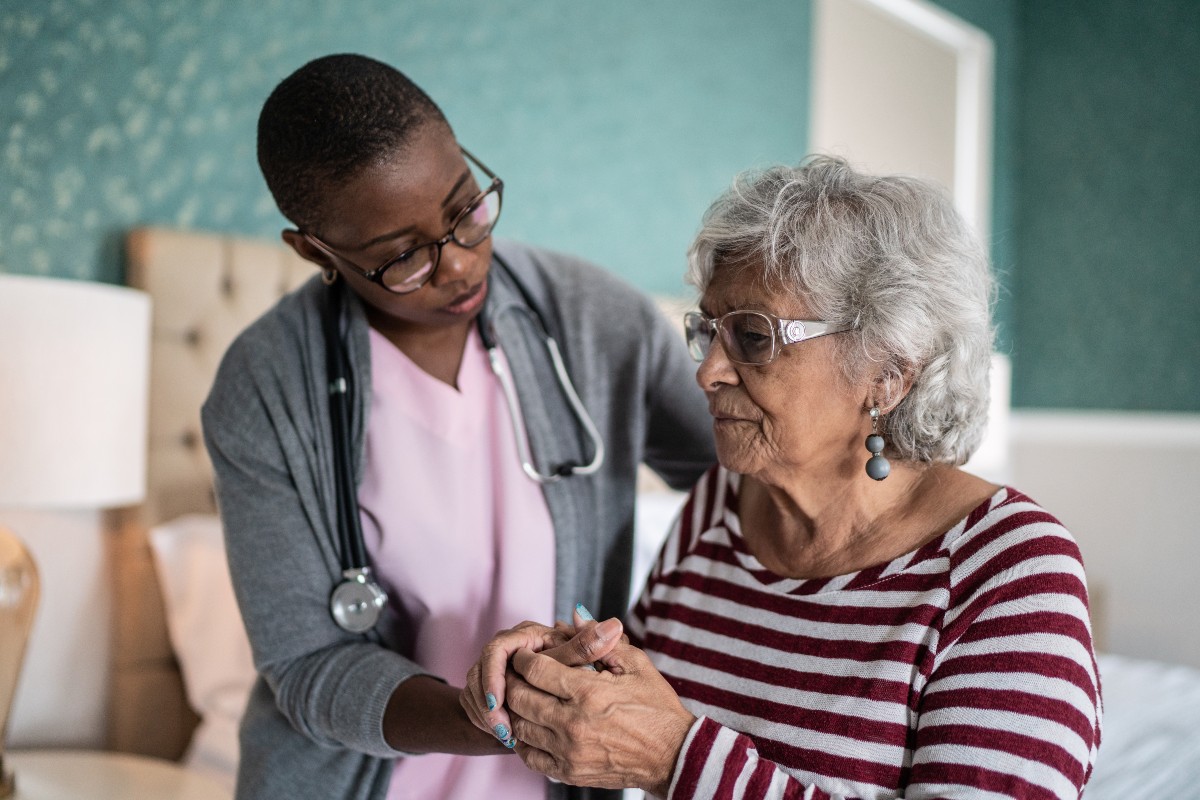Recent Research and Innovation Highlights
This three-year project (2018-2021), funded by the Administration for Community Living, led to the expansion of Riverside Geriatric Assessment and Memory Care Clinics to include medication review and dementia care consultation. Within the Williamsburg community, we created opportunities for learning and personal growth for both family and professional caregivers in the form of microlearning lessons and in-person training.
A total of 1,810 people benefitted from the training including 833 persons living with dementia, 543 family caregivers, and 434 professional staff representing 9,550 total units of direct service delivered. There is continued encouragement for family caregivers participation in the Caring For You: Mind, Body and Soul microlearning lessons; the evidence-based Benjamin Rose Institute on Aging Care Consultation program; and the Memory Café.
This two-year project (2019-2021), funded by the National Institute on Aging, was led by Dr. Joe Gaugler at the University of Minnesota.
CEALH piloted the online “Care to Plan” tool within Riverside Health with support from Senior Care Navigators. The study resulted in the participation of 60 caregivers and the majority agreed that the tool was helpful (70%) and that they would recommend it to other caregivers (83%). Phase II findings are currently underway and will guide future evaluation, dissemination, and potential implementation of this tool within other healthcare systems.
We launched the Purple Flower Project (PFP) in December 2020 through support from the Riverside Foundation Day of Giving initiative. Learn more about the critical need for the purple flower project which is currently available at Riverside Doctors’ Hospital Williamsburg.
The program incorporates a forget-me-not purple flower, a symbol, which prompts the care team to use training approaches to effectively communicate and interact with patients living with dementia. We made a family care packet, which is available to facilitate connection to key community resources such as our Geriatric Assessment Clinic and Memory Care Navigation.
After a successful pilot program, the PFP is being expanded to reach social services and first responders through funding from the Virginia Center on Aging Geriatric Training and Education Initiative.
This two-year project (2016-2018) was funded by the Centers for Medicare and Medicaid Services Civil Monetary Penalty funds. Microlearning presents an opportunity to train staff in a highly flexible way through short bursts of information in 10 minutes or less.
Our team developed, piloted, and evaluated a 52-week training curriculum on person-centered dementia care in Virginia nursing homes. Findings indicated that staff (N=250) knowledge and attitudes were positively impacted by the training and the format enabled them to translate learning directly to their jobs. This work is published in the Journal of Applied Gerontology and the research team received a publication award from the Mather Institute.
A second study (2019-2020) was funded by the Virginia Center on Aging Geriatric Training and Education Initiative that facilitated the dissemination of these lessons through both Leading Age Virginia and Leading Age national.
A comprehensive medication review (CMR) is the assessment of a person’s full medication regimen, to include prescription, over-the-counter (OTC) medications, and herbal products. The CMR was launched in 2018.
The research involved the patient and/or their family caregiver participating to ensure the assessment supports the patient’s goals of care, while the geriatric pharmacist leads the CMR. The geriatric pharmacist is a key member of the interdisciplinary team that has specialized knowledge of geriatric syndromes like incontinence, falls, functional decline, and polypharmacy. The pharmacist is also adept at communicating with both the patient and their caregiver.
The research, which compared to inital review and 6 month follow-up, indicated a significant decrease in medication use over time, including both prescription and OTC medications; and greater linkage with the primary care provider. Local community organizations or healthcare systems who are looking to adopt a similar program may wish to consult our Implementation Manual.To receive a free copy, please send your request to [email protected].



